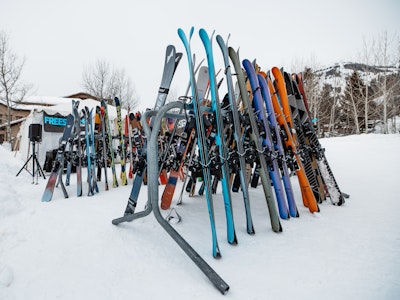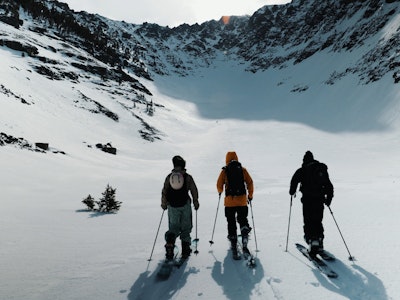COE photos courtesy of Tucker Perkins
Freeskier: What was the experience like at the USSA Center of Excellence?
Tucker Perkins: It was really cool. It was unlike anything I've ever done before. They brought us in, all nine team members, put us up in the sweet Marriott right in Park City… We were stoked. I know a lot of us — Simon [Dumont] and Dave [Wise] especially — have really been pushing for the sport to be in the Olympics for a long time. So to see the sport to get to this level, and to be selected for this super elite team was a dream come true and something special.
FS: What did you do there?
TP: A lot of physical testing. They partnered us up, I was with Gus [Kenworthy], Simon with Torin [Yater-Wallace], etc. At seven in the morning they bring us in to the hospital and drew blood and analyzed it. They made sure we're all up to par and ready to take part in the heavy training regime.
[For instance] they put us on these bikes and we required to produce a certain amount of watts. In five minute intervals it got progressively harder… and they would prick our fingers and draw blood to analyze our lactic acid. We had to pedal faster each time to see how hard we could push ourselves under a certain lactic level. It was kind of cool.
It moved into different exercises, too. They would hook a belt to you that's attached to a wire that's hooked to the ceiling to measure how high you jump. You're also standing on a floor plate and it measures how much energy you're using and measures each individual leg and all that. Basically they put us through tests to see where we measure up.
FS: What is the benefit of all this?
TP: Well, you look at the results and we were all twisted up. Now they are putting us on specific work out programs that are supposed to get us back in balance. Compared to the racers, we're pretty beat up, with all of our injuries and such. But we have all these numbers and blood work, so we're pretty convinced it'll help us out.
FS: What's next after this first step?
TP: We go through two guys: one nutritionist and one who develops our workout program. We'll be in constant contact with them. They want us to be there [at the COE] as much as we can. Between the COE, the water ramps and the pipe and slope course that Park City has in the winter, we'll see. We have a bunch of on snow camps set up in the winter, too. With these training tools to advantage of, I really want to crank with them before the season gets under way.
David Wise jumpin' for the scientists.
FS: How will being a part of this team affect your season? It means more on the calendar in an already busy season.
TP: I'm trying not to look at it as more things on the calendar. All of us will have to adjust. Rather than being an individual, we can feed of each other. We're the strongest halfpipe guys in the US, but it'll be about pushing each other and getting better. I'm not looking at it as additional stress and more traveling. It's a positive for sure.
FS: What is it like being on a the team?
TP: We're on the same team striving for the same goals. We're still competing against each other but we're in this together. We all got closer on this trip. It'll be nice training with Simon, Torin, Dave, Gus and all the women, too. Instead of representing ourselves as an individual we'll be representing our country. It's a whole new level.
FS: How did you guys as freeskiers, meld with the staff and other traditional athletes?
TP: We were pretty worried about that. But the athletes and staff they were pretty cool. They were so psyched and super excited to have us there. It's a little different for us as the other teams have been around for so long and we're the first of our kind. So rather than being put under strict guidelines and being told what to do, they were listening to us.
Bill Marolt [President and CEO of USSA] is open to our ideas and when it comes down to it, they want us to win. The racers and mogul skiers were psyched. They saw that we were super enthusiastic and working hard. People might make fun of it, but there are so many tools there, and they could tell we were working hard. There was no negative attitude toward us at all.
FS: How do you think the rest of the competitors and industry feel? It has a non-core connotation.
TP: I know exactly what you mean. It's almost looked down upon. I think we're going to always take heat and there will always be multiple opinions. But at the end of the day, it's all about injury prevention and longevity. If it can allow me to add two or three more years in my career then I don't care about gettin' shit for that. That's the point of working out. It's such a grind to get through the season with the schedule we have. If we can have any advantage of feeling better and not hurting ourselves, I'll take as much heat as anyone for that.
FS: Can you offer any insight on future plans for the US Freeskiing Team? Personnel changes, etc?TP: I can't. I'm not sure how they came up with the number of five guys and four women. I think it can change. As the sport grows heading towards the Olympics I think we'll see some more members added to the team. As long as the team keeps getting results, it could keep growing. But I have no information on the criteria though.
FS: What was the coolest part about this trip for you?
TP: It was definitely about being a part of something bigger than ourselves. We're not at the Olympics yet, but being brought in and exposed to athletes not in your sport was incredible. They are trying to be the best, too and having people with the same goals as you is cool. The staff is the best in their department also. The sport scientists, the trainers and even the business guys. I've never been around more motivated people. Being around that makes you want to be better.
FS: What are your goals outside of medaling?
TP: Obviously the end goal is to medal and I'll do everything in my power to do so. But even if I wake up sick on the day of the Olympics, I wouldn't be bummed. Such a limited amount of people have this opportunity. To have all the resources and the people pushing you is cool and I want to enjoy each and every day of my career. At the end, to look back on it, what a trip. The chance to be on the national team for the Olympics is super special. You can't overlook it and you can't over think it. It comes down to having fun.
FS: So it's the clichéd, 'it's not the destination, it's the journey'?
TP: Exactly.
–More information on the US Freeskiing Brand
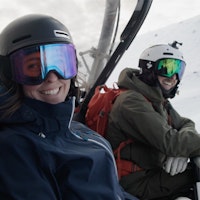
![[GIVEAWAY] Win a Head-to-Toe Ski Setup from IFSA](https://www.datocms-assets.com/163516/1765920344-ifsa.jpg?w=200&h=200&fit=crop)
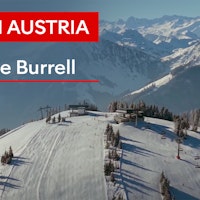
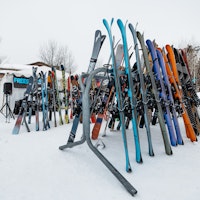
![[GIVEAWAY] Win a Legendary Ski Trip with Icelantic's Road to the Rocks](https://www.datocms-assets.com/163516/1765233064-r2r26_freeskier_leaderboard1.jpg?auto=format&w=400&h=300&fit=crop&crop=faces,entropy)
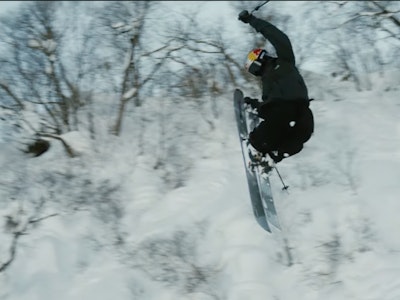
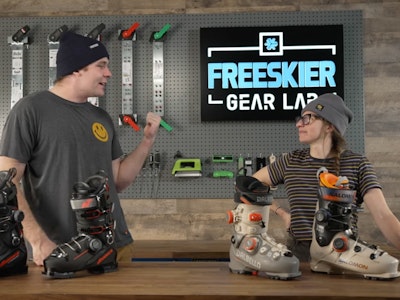
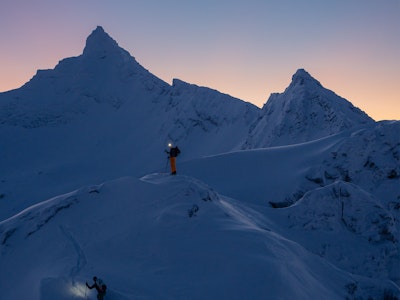
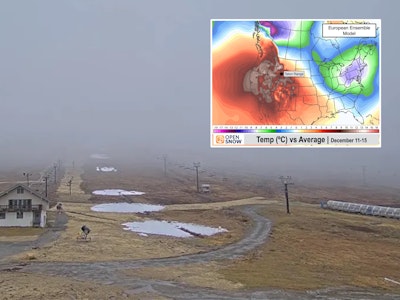
![[GIVEAWAY] Win a Head-to-Toe Ski Setup from IFSA](https://www.datocms-assets.com/163516/1765920344-ifsa.jpg?auto=format&w=400&h=300&fit=crop&crop=faces,entropy)
